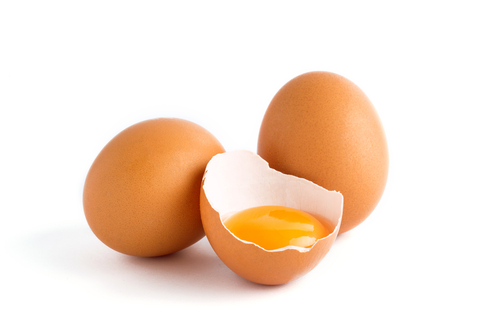During this period of economic strain, using leftovers is a practical solution to the expensive sandwich shop lunches, the cost of which appears to be exceeding our daily wages.
While leftovers (or, for the health-conscious, “pre-prepared” dishes) are a delightfully thrifty way to keep our lunchboxes full and our wallets happy throughout the week, it’s important to remember that some dishes aren’t safe for reheating and can become health hazards.
Food researchers at Two Wombats have shared a list of 10 surprising foods that you should not reheat the next day.
Eggs
Although a cherished breakfast option, the consumption of eggs that are inadequately cooked presents a potential health hazard. Salmonella, a bacterium known to cause foodborne illness, can be present in undercooked eggs.

“Leftovers are best enjoyed cold or incorporated into cold dishes like salads or cold pasta dishes. Reheating cooked eggs carries a potential risk of food poisoning,” suggest the experts.
Mushrooms
Mushrooms are particularly prone to spoilage by microbes, making reheating them a potential cause of stomach upsets.
For optimal consumption, the experts advise enjoying mushrooms soon after preparation. This minimises the breakdown of their complex proteins, thereby reducing the likelihood of digestive discomfort.
Potatoes
While undeniably beloved for their versatility, from chips and crisps to fluffy bakes, potatoes require proper reheating practices to avoid potential health risks.
Leaving cooked potatoes at room temperature can create favourable conditions for the growth of Clostridium botulinum, a bacteria producing harmful toxins, which attacks your nervous system.
To mitigate this risk, the experts suggest refrigerating cooked potatoes within two hours of preparation. Additionally, avoid reheating them in low-oxygen environments, such as wrapped in foil.
Rice
Rice, a cornerstone of countless culinary traditions and a versatile pantry staple, often features prominently on our plates. However, reheating cooked rice can be a breeding ground for harmful bacteria.
Reheating leftover rice can be a convenient option, but it’s important to be aware that the process can lead to bacterial growth, which can cause vomiting, diarrhoea, and general stomach upsets.
For optimal safety, rice dishes are best enjoyed immediately after cooking. Alternatively, once cooled, they can be refrigerated and consumed within a 24-hour period.
Seafood
While reheating seafood in the office microwave can undoubtedly test the patience of colleagues with its potent aroma, it’s also important to remember that seafood carries a significant risk of food poisoning if not handled correctly.
To minimise risk, the experts advise consuming all seafood in a single sitting. If leftovers are unavoidable, they should not be left at room temperature for more than two hours and are best utilised in cold dishes.
Oils
Certain oils, including avocado, walnut, and grape seed oil, are susceptible to becoming rancid upon reheating.
Repeatedly heating oil can result in unpleasant odours and flavours, while temperatures exceeding 190°C (375°F) can elevate levels of LDL cholesterol, thereby increasing the risk of heart disease.
Baby food and milk
Leftover warmed baby food, particularly if unfinished, can potentially harbour bacteria transferred from your little one’s mouth.
Reheating leftover baby food may not achieve temperatures sufficient to eliminate these transferred bacteria, potentially leading to foodborne illness.
Reheating breast milk and formula is generally discouraged as it can damage valuable nutrients. For formula, reheating is only safe if it’s been stored in the fridge within two hours of preparation.
Turnips
Turnips aren’t just a tasty addition to your veg mix; they’re packed with health benefits too.
However, according to the experts, their high water content can lead to the conversion of nitrates into potentially harmful chemicals upon reheating.
For optimal safety, the experts recommend consuming cooked turnips on the day of preparation.
Spinach
While leftover spinach might not be anyone’s favourite, there may also be a health reason to steer clear of reheating these leafy greens.
The reheating process with spinach can trigger the conversion of naturally occurring nitrates into nitrites, which have been linked to potential health concerns.
Consuming high levels of nitrites can be problematic, so it’s best to enjoy leftover spinach cold or soon after initial cooking.
Beets
Beetroot is a nutritional powerhouse, but experts advise caution when reheating leftovers.
Similar to spinach, beetroot boasts a wealth of nutrients, but like its leafy green counterpart, it contains nitrates that can convert into potentially harmful nitrosamines upon reheating.
It’s best not to reheat dishes that contain beets; instead, store and consume them cold if possible. Reheating can also ruin the texture and flavour of beets.
Finding Serenity: The Mental Health Benefits of Exploring Nature